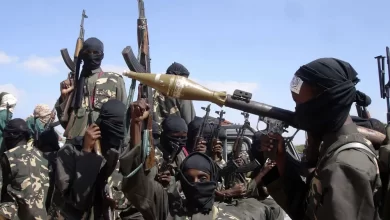Eritrean intervention in Sudan and repeating the disaster of militarizing the East
Adel Al-Sharif

An Introduction:
Sudan is heading towards a new phase of civil war, where the crisis of militarization of civilians is emerging again, with regional and international fronts. This is due to the presence of Eritrean forces within the borders of Sudan, training local militias in the eastern states “Eastern Orta Forces”, where this intervention threatens to invoke a new tribal conflict, in the inflamed eastern region, the results of which may be disastrous and destructive.
The Internal Impact of Eritrean Intervention:
The Eritrean intervention came as a result of exploiting the raging war between the Sudanese Army and the Rapid Support Forces, which created optimal conditions for it to restore its influence in the region. With the approval of the Port Sudan gang, to train and arm these militias working to effectively serve Eritrean interests, which will contribute to opening the door to tribal conflicts, between the Beja on the one hand, and Beni Amer on the other hand.
There are growing concerns that the presence of foreign forces working in coordination with local militias will deepen tribal divisions and create a flammable climate, returning eastern Sudan to the pattern of civil wars it has long suffered from. This was clearly demonstrated by statements made by Beja tribal leader, Al-Nazir Terik along with a number of politicians affiliated with his group.
The Army’s Repeated Mistakes in Supporting Militias:
The Sudanese Army’s continued arming and formation of parallel forces clearly indicates a failure to learn from past mistakes. Such policies will lead to the erosion of trust between the Army and society, which will in turn increase the chances of the emergence of entities outside the authority of the hijacked Army, as is happening now with the Movements of Minni Minnawi and Gibril, that have become a parallel force that the Army cannot impose its will on.
Eritrean interference in Sudanese affairs cannot be viewed and understood in isolation from Egyptian interference. This brings to mind the tripartite summit held in the past few days between Egypt, Eritrea and Somalia, which was held for the purpose of blatant interference and influence in Sudanese affairs, which directly affects national security in the region and threatens to destabilize international peace and security.
In Conclusion:
The militarization of eastern Sudan and Eritrea’s entry into the scene pose a serious threat to the stability of the country. Instead of engaging in policies that leads towards fragmentation, the de facto government in Port Sudan should review its policies and positions, especially in light of the successive military defeats it suffered at the hands of the Rapid Support Forces, and instead move towards peace and stability, in order to preserve the unity of Sudan.




